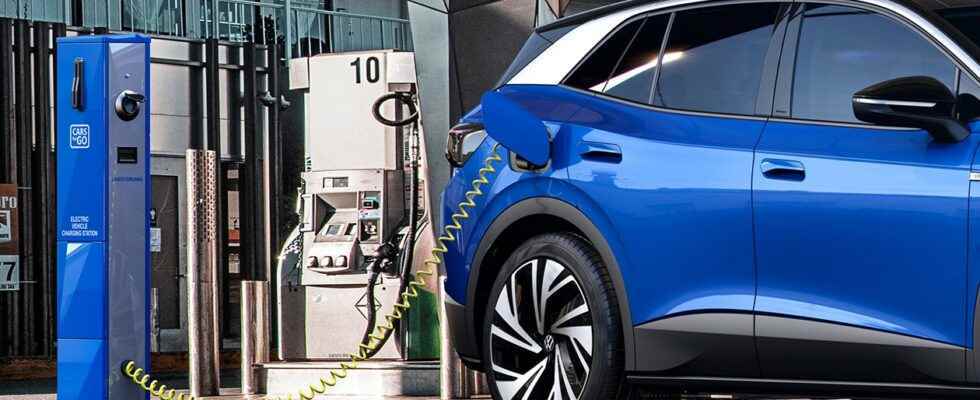Where is the cheapest place to charge your electric vehicle? According to the Chamber of Labor, this question is difficult to answer. Due to a “jungle” of tariff models for publicly accessible charging stations, there is hardly any transparency.
This finding is a result of a current price and market analysis. AK energy expert Michael Soder compared 28 tariffs from 16 providers. The AK assumes an average consumption of 15 kWh per 100 kilometers for an average e-car (which is quite a low value) and calculated electricity costs of 5.57 euros for a journey of 100 kilometers if you charge at your own wall box. If the vehicle is charged 80 percent at home and 20 percent at public charging stations (which, according to AK, corresponds to average use), you pay an average of 6.57 euros for 100 kilometers. If you only used public charging stations, you would have to pay an average of 10.57 euros. For comparison: The AK calculated costs of 13.23 or 14.28 euros for the same trip with diesel or petrol drive. However, the price advantage of the electric drive depends heavily on the respective tariff model. While collective agreements, which are the dominant billing model, cause costs of EUR 5.93 per 100 kilometers on average, flat-rate tariffs are almost twice as much at EUR 10.95. In studies in 2018 and 2020, flat-rate tariffs were even cheaper than contract tariffs. Card payment is immensely expensive It gets really expensive if you pay by direct payment, i.e. with a credit card at the charging station. Here the average price for a 100-kilometer trip is 14.83 euros, 150 percent higher than the contractual tariffs and even higher than the petrol costs for the same route. According to the AK, there are also major differences within the respective tariff models: The difference between the cheapest and The most expensive offer is EUR 10.94 for contract tariffs, EUR 13 for flat-rate tariffs and EUR 16.20 for direct payment tariffs. Depending on which charging station you choose, the price can vary greatly. In order for more transparency to come into the market, the AK calls for easily comparable billing with prices for the same unit (kWh). If an additional fee is charged per minute of charging, then the price for this should be stated separately, according to AK expert Soder. It is best at home – or at work. The AK then advises consumers to pay attention to the charging capacity of their car and which one the charging station has: You pay for the charging capacity of the filling station, even if your own vehicle cannot take it. In addition to price comparisons, you should also find out about the respective contract conditions and choose charging services that correspond to the car. In general, the AK advises charging the car at home or at work as much as possible.
source site-13
